Citric Acid Cleaning Tips: Unlock the sparkling secrets to a naturally clean home! Are you tired of harsh chemicals and their lingering odors? Do you dream of a cleaning routine that’s both effective and eco-friendly? Well, you’re in the right place! I’m about to share some amazing DIY tricks using a simple, yet powerful ingredient: citric acid.
For centuries, cultures around the globe have harnessed the power of citrus fruits for their cleaning and disinfecting properties. From ancient Egyptians using lemon juice to purify water to modern-day enthusiasts embracing natural cleaning solutions, the wisdom of citrus has endured. But why is it so popular? Because it works! Citric acid, found abundantly in lemons, limes, and other citrus fruits, is a natural acid that cuts through grease, grime, and hard water stains like a champ.
In this article, I’ll guide you through a range of citric acid cleaning tips and DIY recipes that will transform your cleaning routine. Forget expensive, store-bought cleaners filled with questionable ingredients. I’ll show you how to create your own effective and affordable solutions for everything from descaling your kettle to tackling stubborn bathroom stains. Not only will you save money, but you’ll also create a healthier and happier home environment. So, grab your lemons (or a bag of citric acid powder!) and let’s get cleaning!
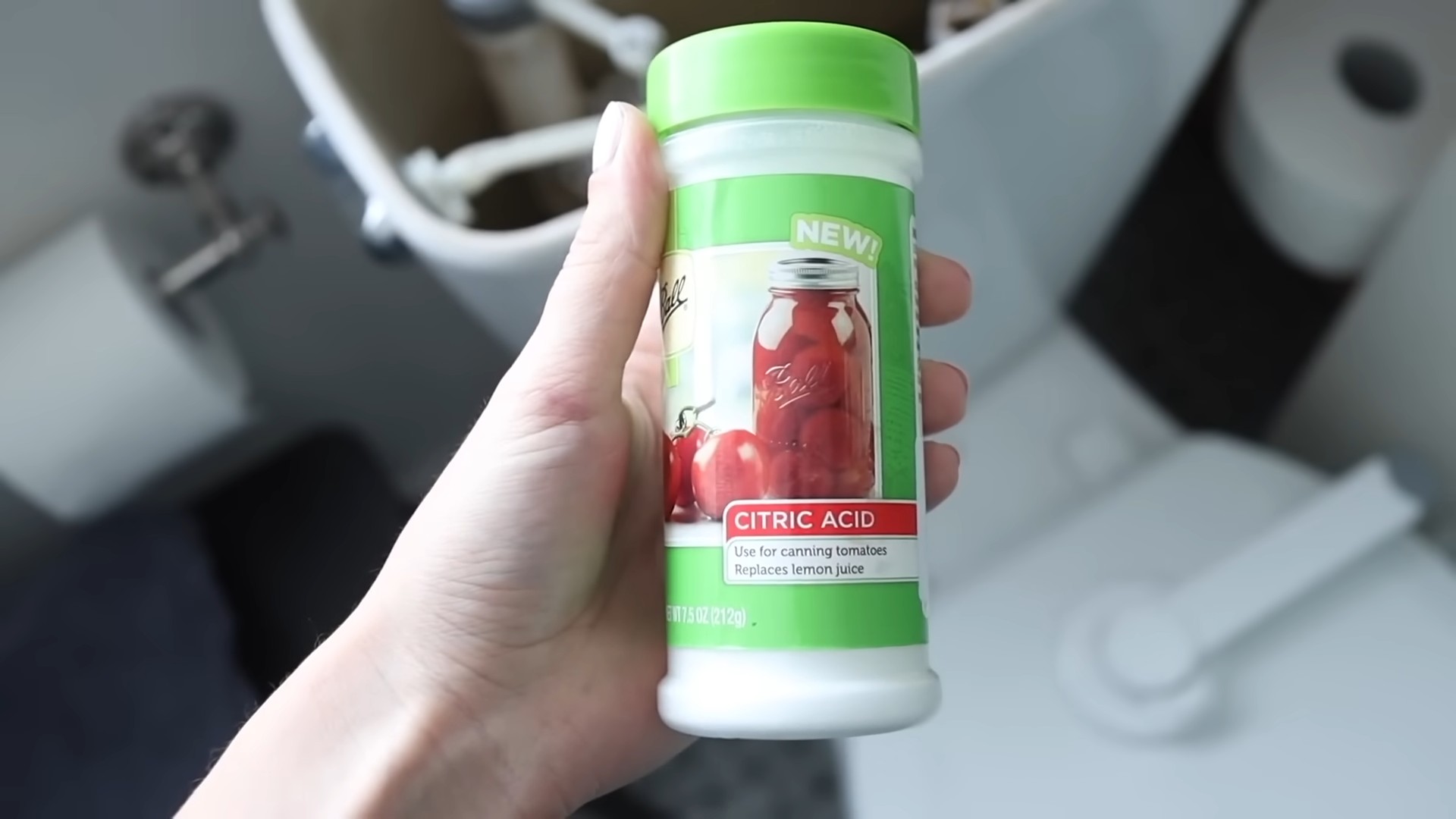
Citric Acid: Your New Best Friend for a Sparkling Home!
Okay, friends, let’s talk about citric acid. You might know it as that sour stuff in lemons and limes, but trust me, it’s a powerhouse when it comes to cleaning. I’ve been using it for years, and I’m constantly amazed by how effective and eco-friendly it is. Forget harsh chemicals – citric acid is here to save the day (and your wallet!). This guide will walk you through some of my favorite ways to use citric acid around the house.
Why Citric Acid?
Before we dive in, let’s quickly cover why I’m so obsessed with citric acid:
* It’s natural: Derived from citrus fruits, it’s a much gentler alternative to many commercial cleaners.
* It’s effective: Don’t let its natural origin fool you; it tackles limescale, rust, soap scum, and hard water stains like a champ.
* It’s versatile: You can use it in the kitchen, bathroom, laundry room – pretty much everywhere!
* It’s affordable: A bag of citric acid powder is surprisingly inexpensive and lasts a long time.
* It’s biodegradable: Good for your home and good for the planet!
General Tips for Using Citric Acid
* Always dilute it: Citric acid is potent, so always mix it with water before using it. I’ll provide specific ratios for each application below.
* Test on a small area first: Especially on delicate surfaces like marble or painted items, test a small, inconspicuous area to ensure it doesn’t cause any damage.
* Wear gloves: While citric acid is generally safe, it can irritate sensitive skin. I always wear gloves when using it for cleaning.
* Avoid contact with eyes: If you get citric acid in your eyes, rinse immediately with plenty of water.
* Don’t mix with bleach: This is a general rule for cleaning, but it’s worth repeating. Mixing citric acid with bleach can create harmful fumes.
* Store it properly: Keep citric acid powder in a cool, dry place, away from children and pets.
Descaling Your Kettle and Coffee Maker
Limescale buildup can really affect the performance of your kettle and coffee maker, not to mention the taste of your drinks. Here’s how to use citric acid to descale them:
1. Prepare the solution: Mix 1-2 tablespoons of citric acid powder with 1 liter of water. The amount depends on how much limescale you have. For a lightly scaled kettle, 1 tablespoon should be enough.
2. Fill the kettle/coffee maker: Pour the citric acid solution into your kettle or the water reservoir of your coffee maker.
3. Boil/Run the cycle:
* Kettle: Boil the solution and let it sit for 30 minutes to an hour. For stubborn limescale, you can boil it again.
* Coffee Maker: Run a full brewing cycle with the citric acid solution.
4. Rinse thoroughly: After descaling, rinse the kettle or coffee maker several times with fresh water to remove any remaining citric acid. I usually rinse mine at least three times to be sure.
5. Boil/Run a water-only cycle: Finally, boil a kettle full of fresh water or run a water-only brewing cycle to ensure all traces of citric acid are gone.
Cleaning Your Dishwasher
A clean dishwasher means cleaner dishes! Citric acid can help remove limescale, grease, and food residue from your dishwasher.
1. Empty the dishwasher: Make sure your dishwasher is completely empty.
2. Prepare the solution: Pour about 2-3 tablespoons of citric acid powder into the detergent dispenser.
3. Run a hot cycle: Run your dishwasher on its hottest cycle. I usually use the “sanitize” or “heavy-duty” setting.
4. Optional: For extra cleaning power, you can also sprinkle a tablespoon of citric acid on the bottom of the dishwasher before running the cycle.
5. Repeat if necessary: If your dishwasher is particularly dirty, you may need to repeat the process. I usually do this every few months to keep my dishwasher in tip-top shape.
Removing Soap Scum and Hard Water Stains in the Bathroom
Soap scum and hard water stains can make your bathroom look grimy, even after you’ve cleaned it. Citric acid is a fantastic solution for tackling these stubborn stains.
1. Prepare the solution: Mix 2-3 tablespoons of citric acid powder with 500ml of warm water in a spray bottle. Shake well to dissolve the citric acid.
2. Spray the affected areas: Spray the citric acid solution onto the shower walls, tiles, faucets, and showerhead.
3. Let it sit: Allow the solution to sit for 15-30 minutes. For heavy buildup, you can let it sit for longer, but keep an eye on it to make sure it doesn’t damage any surfaces.
4. Scrub: Use a sponge or scrub brush to scrub away the soap scum and hard water stains.
5. Rinse thoroughly: Rinse the treated areas with plenty of water.
6. Dry: Dry the surfaces with a clean cloth.
Pro Tip: For stubborn stains on showerheads, you can soak the showerhead in a citric acid solution (1-2 tablespoons per liter of water) for a few hours or overnight.
Cleaning Your Washing Machine
Just like your dishwasher, your washing machine can accumulate limescale and detergent residue over time. Cleaning it with citric acid will help keep it running efficiently and prevent unpleasant odors.
1. Empty the washing machine: Make sure your washing machine is completely empty.
2. Add citric acid: Pour about 1/2 cup (approximately 100g) of citric acid powder directly into the drum of the washing machine.
3. Run a hot cycle: Run your washing machine on its hottest and longest cycle.
4. Optional: For a more thorough cleaning, you can also add a cup of white vinegar to the detergent dispenser.
5. Repeat if necessary: If your washing machine is particularly dirty, you may need to repeat the process. I try to do this every few months to keep my washing machine clean and fresh.
Rust Removal
Citric acid is a great natural rust remover.
1. Prepare the solution: Mix 2-3 tablespoons of citric acid powder with 500ml of hot water in a container.
2. Soak the rusty item: Submerge the rusty item in the citric acid solution. Make sure the entire rusty area is covered.
Okay, friends, let’s talk about citric acid. You might know it as that sour stuff in lemons and limes, but trust me, it’s a powerhouse when it comes to cleaning. I’ve been using it for years, and I’m constantly amazed by how effective and eco-friendly it is. Forget harsh chemicals – citric acid is here to save the day (and your wallet!). This guide will walk you through some of my favorite ways to use citric acid around the house.
Why Citric Acid?
Before we dive in, let’s quickly cover why I’m so obsessed with citric acid:
* It’s natural: Derived from citrus fruits, it’s a much gentler alternative to many commercial cleaners.
* It’s effective: Don’t let its natural origin fool you; it tackles limescale, rust, soap scum, and hard water stains like a champ.
* It’s versatile: You can use it in the kitchen, bathroom, laundry room – pretty much everywhere!
* It’s affordable: A bag of citric acid powder is surprisingly inexpensive and lasts a long time.
* It’s biodegradable: Good for your home and good for the planet!
General Tips for Using Citric Acid
* Always dilute it: Citric acid is potent, so always mix it with water before using it. I’ll provide specific ratios for each application below.
* Test on a small area first: Especially on delicate surfaces like marble or painted items, test a small, inconspicuous area to ensure it doesn’t cause any damage.
* Wear gloves: While citric acid is generally safe, it can irritate sensitive skin. I always wear gloves when using it for cleaning.
* Avoid contact with eyes: If you get citric acid in your eyes, rinse immediately with plenty of water.
* Don’t mix with bleach: This is a general rule for cleaning, but it’s worth repeating. Mixing citric acid with bleach can create harmful fumes.
* Store it properly: Keep citric acid powder in a cool, dry place, away from children and pets.
Descaling Your Kettle and Coffee Maker
Limescale buildup can really affect the performance of your kettle and coffee maker, not to mention the taste of your drinks. Here’s how to use citric acid to descale them:
1. Prepare the solution: Mix 1-2 tablespoons of citric acid powder with 1 liter of water. The amount depends on how much limescale you have. For a lightly scaled kettle, 1 tablespoon should be enough.
2. Fill the kettle/coffee maker: Pour the citric acid solution into your kettle or the water reservoir of your coffee maker.
3. Boil/Run the cycle:
* Kettle: Boil the solution and let it sit for 30 minutes to an hour. For stubborn limescale, you can boil it again.
* Coffee Maker: Run a full brewing cycle with the citric acid solution.
4. Rinse thoroughly: After descaling, rinse the kettle or coffee maker several times with fresh water to remove any remaining citric acid. I usually rinse mine at least three times to be sure.
5. Boil/Run a water-only cycle: Finally, boil a kettle full of fresh water or run a water-only brewing cycle to ensure all traces of citric acid are gone.
Cleaning Your Dishwasher
A clean dishwasher means cleaner dishes! Citric acid can help remove limescale, grease, and food residue from your dishwasher.
1. Empty the dishwasher: Make sure your dishwasher is completely empty.
2. Prepare the solution: Pour about 2-3 tablespoons of citric acid powder into the detergent dispenser.
3. Run a hot cycle: Run your dishwasher on its hottest cycle. I usually use the “sanitize” or “heavy-duty” setting.
4. Optional: For extra cleaning power, you can also sprinkle a tablespoon of citric acid on the bottom of the dishwasher before running the cycle.
5. Repeat if necessary: If your dishwasher is particularly dirty, you may need to repeat the process. I usually do this every few months to keep my dishwasher in tip-top shape.
Removing Soap Scum and Hard Water Stains in the Bathroom
Soap scum and hard water stains can make your bathroom look grimy, even after you’ve cleaned it. Citric acid is a fantastic solution for tackling these stubborn stains.
1. Prepare the solution: Mix 2-3 tablespoons of citric acid powder with 500ml of warm water in a spray bottle. Shake well to dissolve the citric acid.
2. Spray the affected areas: Spray the citric acid solution onto the shower walls, tiles, faucets, and showerhead.
3. Let it sit: Allow the solution to sit for 15-30 minutes. For heavy buildup, you can let it sit for longer, but keep an eye on it to make sure it doesn’t damage any surfaces.
4. Scrub: Use a sponge or scrub brush to scrub away the soap scum and hard water stains.
5. Rinse thoroughly: Rinse the treated areas with plenty of water.
6. Dry: Dry the surfaces with a clean cloth.
Pro Tip: For stubborn stains on showerheads, you can soak the showerhead in a citric acid solution (1-2 tablespoons per liter of water) for a few hours or overnight.
Cleaning Your Washing Machine
Just like your dishwasher, your washing machine can accumulate limescale and detergent residue over time. Cleaning it with citric acid will help keep it running efficiently and prevent unpleasant odors.
1. Empty the washing machine: Make sure your washing machine is completely empty.
2. Add citric acid: Pour about 1/2 cup (approximately 100g) of citric acid powder directly into the drum of the washing machine.
3. Run a hot cycle: Run your washing machine on its hottest and longest cycle.
4. Optional: For a more thorough cleaning, you can also add a cup of white vinegar to the detergent dispenser.
5. Repeat if necessary: If your washing machine is particularly dirty, you may need to repeat the process. I try to do this every few months to keep my washing machine clean and fresh.
Rust Removal
Citric acid is a great natural rust remover.
1. Prepare the solution: Mix 2-3 tablespoons of citric acid powder with 500ml of hot water in a container.
2. Soak the rusty item: Submerge the rusty item in the citric acid solution. Make sure the entire rusty area is covered.
3. Let it soak: Let the item soak for several hours or even overnight, depending on the severity of the rust. Check on it periodically to see if the rust is loosening.
4. Scrub: After soaking, use a scrub brush or steel wool to scrub away the remaining rust.
5. Rinse and dry: Rinse the item thoroughly with water and dry it completely to prevent further rusting.
6. Repeat if necessary: For heavily rusted items, you may need to repeat the process.
Important Note: Citric acid can remove the finish from some metals, so test it on a small, inconspicuous area first.
Cleaning Burnt Food from Pots and Pans
We’ve all been there – accidentally burning food in a pot or pan. Citric acid can help loosen the burnt food and make it easier to clean.
1. Prepare the solution: Fill the burnt pot or pan with water and add 1-2 tablespoons of citric acid powder.
2. Boil the solution: Bring the solution to a boil on the stovetop.
3. Simmer: Reduce the heat and let the solution simmer for 15-30 minutes.
4. Let it cool: Allow the solution to cool completely.
5. Scrub: Use a sponge or scrub brush to scrub away the burnt food. It should come off much easier now.
6. Wash and rinse: Wash the pot or pan with soap and water, and rinse thoroughly.
Making Your Own Toilet Bowl Cleaner
Skip the harsh chemicals and make your own toilet bowl cleaner with citric acid.
1. Prepare the solution: Mix 1/4 cup of citric acid powder with 1/2 cup of baking soda.
2. Add essential oils (optional): Add a few drops of your favorite essential oil for fragrance. I like using tea tree oil for its antibacterial properties.
3. Pour into the toilet bowl: Pour the mixture into the toilet bowl.
4. Let it fizz: Let the mixture fizz for about 30 minutes.
5. Scrub: Use a toilet brush to scrub the bowl.
6.
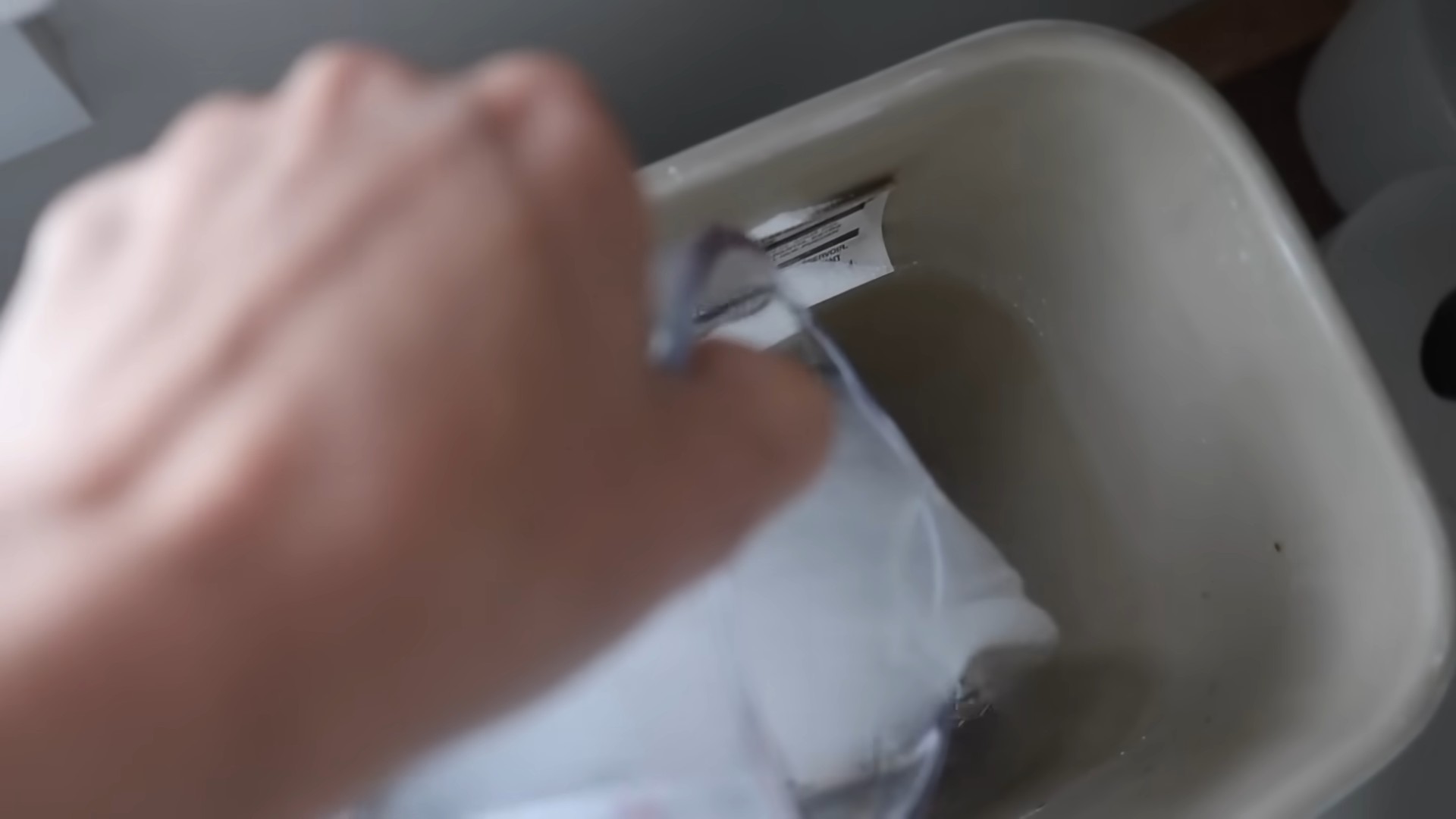
Conclusion
So, there you have it! Embracing the power of citric acid for cleaning is more than just a trend; it’s a sustainable, effective, and surprisingly simple way to transform your cleaning routine. We’ve explored how this natural powerhouse can tackle everything from stubborn hard water stains to lingering odors, all while being gentler on your home and the environment than many harsh chemical alternatives.
Why is this DIY trick a must-try? Because it offers a trifecta of benefits: effectiveness, affordability, and eco-friendliness. You’re not just cleaning; you’re making a conscious choice to reduce your reliance on potentially harmful chemicals and embrace a more natural approach. The versatility of citric acid is truly remarkable. From descaling your kettle and coffee maker to brightening your laundry and removing soap scum in your bathroom, the possibilities are endless.
But don’t just take our word for it! We encourage you to experiment and discover the magic of citric acid cleaning for yourself.
Here are a few suggestions and variations to get you started:
* **Citrus Boost:** For an extra burst of freshness, add a few drops of your favorite essential oil (lemon, orange, or grapefruit are excellent choices) to your citric acid cleaning solutions. This will not only enhance the cleaning power but also leave your home smelling wonderfully clean and revitalized.
* **Paste Power:** For tackling particularly stubborn stains on surfaces like grout or tile, create a paste by mixing citric acid powder with a small amount of water. Apply the paste to the affected area, let it sit for a few minutes, and then scrub gently with a brush or sponge.
* **Vinegar Synergy:** While citric acid is powerful on its own, you can sometimes combine it with other natural cleaning agents like vinegar for enhanced results. For example, a solution of citric acid and vinegar can be particularly effective for cleaning showerheads and faucets. However, always test a small, inconspicuous area first to ensure compatibility and prevent any potential damage.
* **Laundry Love:** Add a tablespoon of citric acid to your washing machine along with your regular detergent to help brighten whites and remove mineral buildup. This is especially helpful if you have hard water.
* **Rust Removal:** Citric acid is a fantastic rust remover. Make a paste and apply to rusted areas, let it sit for a few hours, and then scrub away the rust. For larger items, you can soak them in a citric acid solution.
We’re confident that once you experience the cleaning prowess of citric acid, you’ll be hooked. It’s a game-changer for anyone looking to simplify their cleaning routine, reduce their environmental impact, and achieve sparkling results.
So, go ahead, give it a try! We’re eager to hear about your experiences. Share your tips, tricks, and before-and-after photos in the comments below. Let’s build a community of citric acid cleaning enthusiasts and spread the word about this amazing natural cleaning solution! We believe in the power of shared knowledge, and your insights could help others discover the benefits of this incredible cleaning agent. Let us know how you’ve incorporated citric acid cleaning into your home and what amazing results you’ve achieved. Happy cleaning!
Frequently Asked Questions (FAQ)
**Q: Is citric acid safe to use on all surfaces?**
A: While citric acid is generally safe for most surfaces, it’s always a good idea to test it in an inconspicuous area first, especially on delicate materials like marble, granite, or certain types of painted surfaces. Citric acid is acidic, and while it’s milder than many commercial cleaners, it can potentially etch or discolor sensitive surfaces if left on for too long. Avoid using it on aluminum, as it can cause corrosion. Always rinse thoroughly with water after cleaning with citric acid.
**Q: Where can I buy citric acid?**
A: Citric acid is readily available at most grocery stores, pharmacies, and online retailers. Look for it in the baking aisle (it’s often used as a food preservative) or in the cleaning supplies section. You can typically find it in powder form, which is the most versatile for cleaning purposes. Make sure you are buying pure citric acid and not a blend with other ingredients.
**Q: How do I make a basic citric acid cleaning solution?**
A: A basic citric acid cleaning solution is incredibly easy to make. Simply dissolve 1-2 tablespoons of citric acid powder in 1 cup of warm water. Stir until the powder is completely dissolved. You can then pour the solution into a spray bottle for easy application. Adjust the concentration depending on the severity of the cleaning task. For tougher stains, you can use a stronger solution.
**Q: Can I use citric acid to clean my coffee maker or kettle?**
A: Yes, citric acid is an excellent descaler for coffee makers and kettles. To clean your coffee maker, fill the water reservoir with a solution of 1-2 tablespoons of citric acid per cup of water. Run the coffee maker through a full brewing cycle. Then, run it through two or three cycles with plain water to rinse away any remaining citric acid. For kettles, fill the kettle with the citric acid solution and boil it. Let it sit for 30 minutes, then rinse thoroughly with water.
**Q: Is citric acid safe for septic systems?**
A: Yes, citric acid is generally considered safe for septic systems. It’s a natural substance that breaks down quickly and doesn’t contain harsh chemicals that can harm the beneficial bacteria in your septic tank. However, as with any cleaning product, it’s best to use it in moderation. Avoid pouring large quantities of citric acid down the drain at once.
**Q: Can I use citric acid to remove hard water stains from my shower?**
A: Absolutely! Citric acid is a fantastic hard water stain remover. Spray the affected areas with a citric acid solution (1-2 tablespoons per cup of water). Let it sit for 10-15 minutes, then scrub with a sponge or brush. Rinse thoroughly with water. For stubborn stains, you may need to repeat the process or use a stronger solution.
**Q: How does citric acid compare to vinegar for cleaning?**
A: Both citric acid and vinegar are effective natural cleaning agents, but they have slightly different properties. Citric acid is generally considered to be more effective at removing hard water stains and rust, while vinegar is better at cutting through grease and grime. Citric acid also tends to have a more pleasant scent than vinegar. Ultimately, the best choice depends on the specific cleaning task and your personal preference.
**Q: Can I mix citric acid with bleach?**
A: No, never mix citric acid with bleach or any other chlorine-based cleaning products. Mixing acids with bleach can create dangerous chlorine gas, which is toxic and can cause serious respiratory problems. Always use citric acid on its own or with other safe, natural cleaning agents.
**Q: How should I store citric acid powder?**
A: Store citric acid powder in a cool, dry place in an airtight container. This will help prevent it from clumping or absorbing moisture. Keep it out of reach of children and pets.
**Q: Can citric acid be used to clean laundry?**
A: Yes, citric acid can be a great addition to your laundry routine. Adding a tablespoon of citric acid to your washing machine along with your regular detergent can help brighten whites, remove mineral buildup, and soften fabrics. It’s especially helpful if you have hard water.
**Q: What safety precautions should I take when using citric acid?**
So, there you have it! Embracing the power of citric acid for cleaning is more than just a trend; it’s a sustainable, effective, and surprisingly simple way to transform your cleaning routine. We’ve explored how this natural powerhouse can tackle everything from stubborn hard water stains to lingering odors, all while being gentler on your home and the environment than many harsh chemical alternatives.
Why is this DIY trick a must-try? Because it offers a trifecta of benefits: effectiveness, affordability, and eco-friendliness. You’re not just cleaning; you’re making a conscious choice to reduce your reliance on potentially harmful chemicals and embrace a more natural approach. The versatility of citric acid is truly remarkable. From descaling your kettle and coffee maker to brightening your laundry and removing soap scum in your bathroom, the possibilities are endless.
But don’t just take our word for it! We encourage you to experiment and discover the magic of citric acid cleaning for yourself.
Here are a few suggestions and variations to get you started:
* **Citrus Boost:** For an extra burst of freshness, add a few drops of your favorite essential oil (lemon, orange, or grapefruit are excellent choices) to your citric acid cleaning solutions. This will not only enhance the cleaning power but also leave your home smelling wonderfully clean and revitalized.
* **Paste Power:** For tackling particularly stubborn stains on surfaces like grout or tile, create a paste by mixing citric acid powder with a small amount of water. Apply the paste to the affected area, let it sit for a few minutes, and then scrub gently with a brush or sponge.
* **Vinegar Synergy:** While citric acid is powerful on its own, you can sometimes combine it with other natural cleaning agents like vinegar for enhanced results. For example, a solution of citric acid and vinegar can be particularly effective for cleaning showerheads and faucets. However, always test a small, inconspicuous area first to ensure compatibility and prevent any potential damage.
* **Laundry Love:** Add a tablespoon of citric acid to your washing machine along with your regular detergent to help brighten whites and remove mineral buildup. This is especially helpful if you have hard water.
* **Rust Removal:** Citric acid is a fantastic rust remover. Make a paste and apply to rusted areas, let it sit for a few hours, and then scrub away the rust. For larger items, you can soak them in a citric acid solution.
We’re confident that once you experience the cleaning prowess of citric acid, you’ll be hooked. It’s a game-changer for anyone looking to simplify their cleaning routine, reduce their environmental impact, and achieve sparkling results.
So, go ahead, give it a try! We’re eager to hear about your experiences. Share your tips, tricks, and before-and-after photos in the comments below. Let’s build a community of citric acid cleaning enthusiasts and spread the word about this amazing natural cleaning solution! We believe in the power of shared knowledge, and your insights could help others discover the benefits of this incredible cleaning agent. Let us know how you’ve incorporated citric acid cleaning into your home and what amazing results you’ve achieved. Happy cleaning!
Frequently Asked Questions (FAQ)
**Q: Is citric acid safe to use on all surfaces?**
A: While citric acid is generally safe for most surfaces, it’s always a good idea to test it in an inconspicuous area first, especially on delicate materials like marble, granite, or certain types of painted surfaces. Citric acid is acidic, and while it’s milder than many commercial cleaners, it can potentially etch or discolor sensitive surfaces if left on for too long. Avoid using it on aluminum, as it can cause corrosion. Always rinse thoroughly with water after cleaning with citric acid.
**Q: Where can I buy citric acid?**
A: Citric acid is readily available at most grocery stores, pharmacies, and online retailers. Look for it in the baking aisle (it’s often used as a food preservative) or in the cleaning supplies section. You can typically find it in powder form, which is the most versatile for cleaning purposes. Make sure you are buying pure citric acid and not a blend with other ingredients.
**Q: How do I make a basic citric acid cleaning solution?**
A: A basic citric acid cleaning solution is incredibly easy to make. Simply dissolve 1-2 tablespoons of citric acid powder in 1 cup of warm water. Stir until the powder is completely dissolved. You can then pour the solution into a spray bottle for easy application. Adjust the concentration depending on the severity of the cleaning task. For tougher stains, you can use a stronger solution.
**Q: Can I use citric acid to clean my coffee maker or kettle?**
A: Yes, citric acid is an excellent descaler for coffee makers and kettles. To clean your coffee maker, fill the water reservoir with a solution of 1-2 tablespoons of citric acid per cup of water. Run the coffee maker through a full brewing cycle. Then, run it through two or three cycles with plain water to rinse away any remaining citric acid. For kettles, fill the kettle with the citric acid solution and boil it. Let it sit for 30 minutes, then rinse thoroughly with water.
**Q: Is citric acid safe for septic systems?**
A: Yes, citric acid is generally considered safe for septic systems. It’s a natural substance that breaks down quickly and doesn’t contain harsh chemicals that can harm the beneficial bacteria in your septic tank. However, as with any cleaning product, it’s best to use it in moderation. Avoid pouring large quantities of citric acid down the drain at once.
**Q: Can I use citric acid to remove hard water stains from my shower?**
A: Absolutely! Citric acid is a fantastic hard water stain remover. Spray the affected areas with a citric acid solution (1-2 tablespoons per cup of water). Let it sit for 10-15 minutes, then scrub with a sponge or brush. Rinse thoroughly with water. For stubborn stains, you may need to repeat the process or use a stronger solution.
**Q: How does citric acid compare to vinegar for cleaning?**
A: Both citric acid and vinegar are effective natural cleaning agents, but they have slightly different properties. Citric acid is generally considered to be more effective at removing hard water stains and rust, while vinegar is better at cutting through grease and grime. Citric acid also tends to have a more pleasant scent than vinegar. Ultimately, the best choice depends on the specific cleaning task and your personal preference.
**Q: Can I mix citric acid with bleach?**
A: No, never mix citric acid with bleach or any other chlorine-based cleaning products. Mixing acids with bleach can create dangerous chlorine gas, which is toxic and can cause serious respiratory problems. Always use citric acid on its own or with other safe, natural cleaning agents.
**Q: How should I store citric acid powder?**
A: Store citric acid powder in a cool, dry place in an airtight container. This will help prevent it from clumping or absorbing moisture. Keep it out of reach of children and pets.
**Q: Can citric acid be used to clean laundry?**
A: Yes, citric acid can be a great addition to your laundry routine. Adding a tablespoon of citric acid to your washing machine along with your regular detergent can help brighten whites, remove mineral buildup, and soften fabrics. It’s especially helpful if you have hard water.
**Q: What safety precautions should I take when using citric acid?**
A: While citric acid is generally safe, it’s still important to take some basic safety precautions. Avoid getting it in your eyes or on your skin. If contact occurs, rinse thoroughly with water. Wear gloves if you have sensitive skin or are using a strong citric acid solution. Keep citric acid out of reach of children and pets. Never mix it with bleach or other harsh chemicals.

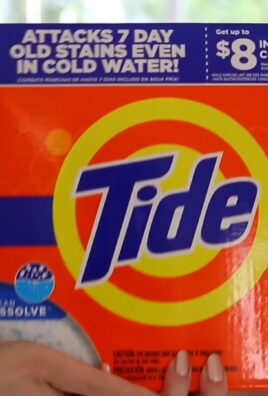
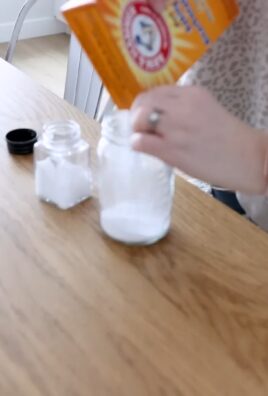
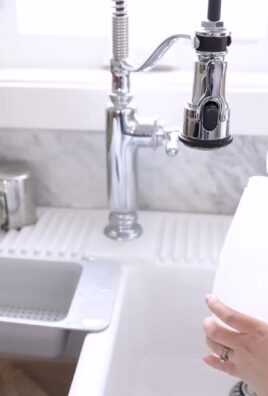
Leave a Comment